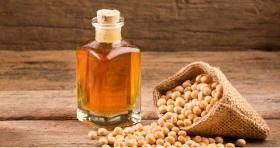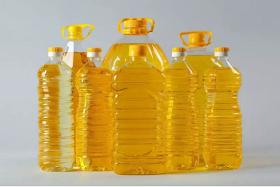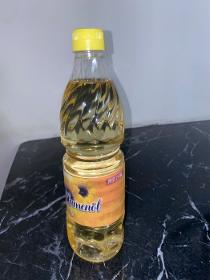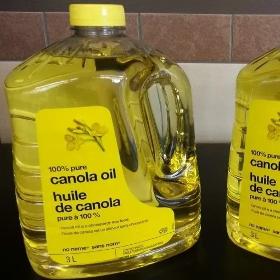- europages
- >
- COMPANIES - SUPPLIERS - SERVICE PROVIDERS
- >
- processing of vegetable oils
Results for
Processing of vegetable oils - Import export

DE SMET ENGINEERS & CONTRACTORS
Belgium
Edible Oil production is able to process different qualities of products depending on the needs of the market. For some cases the clients may only need the process of Vegetable Oil Extraction, but in order to have the premium quality oil, the Vegetable Oil Refining process will be required. De Smet Engineers & Contractors can assist your company to decide the best process requirements as well as the Contractual Setup that adapts better for every client's case. Following are the main steps of an Edible Oil Refining process: Degumming Degumming reduces the phosphatides content in some crude oils (soybean, sunflower, rapeseed etc) Neutralizing The free acids contain in oil can be either alkali neutralize. Most oils can be "physically" neutralize in the deodoriser render this alkali treatment unnecessary Bleaching During this operation most colouring pigments are removed by absorption bleaching earth. Deodorizing Odour and taste are removed under special condition (high temperature and sparge steam) Winterizing Some oils like sunflower will present an un-pleasant turbidity at low temperature. This can be removed by eliminating components like waxes which solidify at low temperature.
Request for a quote
DE SMET ENGINEERS & CONTRACTORS
Belgium
DSEC has been active in biodiesel production EPC as an alternative for the production of biofuels. Our company favors biodiesel production because it's a biodegradable, non-toxic, produced from renewable resources (vegetable oils, recycled or fatty frying oils animal) and that contains no petroleum product but which can be used to replace petroleum diesel in diesel engines. It can be used pure 100% (B100) as fuel replacement but it is used more often mixed with petrodiesel in concentrations of 2% (B2), 5% (B5) and 10% (B10). Unlike some other biofuels, it requires no modification or adjustment, either at the level of the engine, components of the system of power or fuel storage system. De Smet Engineers & Contractors was able to extend its activities from Edible Oils & Fats to the biodiesel plants construction as a logical evolution for Vegetable Oils processing, offering the same quality and dedication with a range of services starting with Engineering & technical assistance to full turnkey projects (EPC) or EPCM commitments.
Request for a quote
DE SMET ENGINEERS & CONTRACTORS
Belgium
De Smet Engineers & Contractors has been involved in all steps of the production of vegetable oils from oilseeds crushing for the construction of Edible Oils Plants; in this article you will find a more detailed understanding about the process of vegetable oil extraction: First step: Preparation of the oil containing material prior to solvent extraction Cleaning and Drying The plant feedstock must be cleaned so that foreign matters are removed. This applies particularly to sand/silicate and iron which may damage the preparation plant equipment. For some seeds or for some processes the incoming material moisture must be controlled and adjusted for better efficiency of subsequent operations. Mechanical preparation Most of raw materials needs to broken to reduce the particle size to ensure proper cooking and flaking. They are then heated in cooking / conditioning equipment and their moisture further controlled in addition to be softened before the next mechanical operations. After cooking, heated grits are flaked so that the oil cells are broken and the oil more readily available for further solvent extraction or mechanical pressing. Pressing Oilseeds containing above 20 to 25% (rapeseed, sunflower seeds, cottonseeds...) are generally pressed mechanically in order to extract most or part of the oil available in the feedstock. This operation is done through full pressing for maximum oil recovery leaving up to 5 to 10% in the final cake which is marketed as such or through a low pressure pre-pressing operation producing a cake with higher residual oil content which is then recovered in the solvent extraction plant. Dehulling Oil extraction plants produce a solid finished product in addition to the extracted oil; this product (cake or meal) is normally used as an important component for animal feed recipes. Depending on the meal destination, its protein content often needs to be increased and its fibre content minimized. Such characteristics are generally achieved through decortication or dehulling operations that separate the outer part of the feedstock before extracting the oil. Second step: Solvent extraction of the material suitably prepared Extraction In the solvent extractor, solids (Flakes from the flaking machines or cakes from the pre-presses) are conveyed through the equipment while a mixture of hexane and oil (miscella) is sprayed counter-current. The extractor produces therefore deoiled solids containing solvent and miscella. Desolventization Deoiled solids coming out of the extractor are conveyed to a dedicated equipment that completely removes the remaining solvent while preserving the meal quality: the desolventizer. This apparatus is usually combined with additional sections for drying and cooling the meal to the required storage and market parameters. Miscella distillation Solvent contained in the miscella is completely removed under vacuum and optimum temperature for preserving oil quality. The solvent from the distillation as well as the one removed at meal desolventization stage are then recycled to the extractor. Solvent recovery Since the air entering the process together with material fed to the extractor is laden with solvent when it is removed from the plant it first pass through a specially designed absorption column to limit emission to an acceptable level. Meal treatment The extracted meal is often subject for further treatment, including grinding to obtain the required granulometry or pelletizing to reduce its volume during transport.
Request for a quote
HORUS OIL WHOLESALERS
Turkey
Crude Degummed Soybean Oil (CDSO) is pure but inedible soybean oil produced from fair to average quality crude soybeans. Crude Degummed Soybean Oil is produced from soybeans. The color of Crude Soybean oil is yellow to lightly red. The odor, texture and flavor of crude degummed soybean oil are pleasant. Crude degummed soybean oil is produced from controlled NON–GMO soybeans (< 0.9%). The soybeans are cracked, adjusted for moisture content, heated to between 60 ºC to 88 °C (140–190 °F), rolled into flakes and solvent–extracted with hexanes. The majority of the free fatty acids and gums naturally present in soybeans are removed by hydration and mechanical or physical separation. Most of the free fatty acids and gums naturally present in soybeans are removed by mechanical, physical or sometimes chemical separation. The oil is then degummed for applications or consumption. They provide the body with the essential fatty acids, fat soluble vitamins.
Request for a quote
HORUS OIL WHOLESALERS
Turkey
Refined Corn Oil (Maize Oil) is oil extracted from the Germ of Corn (Maize). Its main use is in cooking, where its high smoke point makes Refined Corn Oil a valuable frying oil. It is also a key ingredient in some margarine. Refined Corn Oil generally less expensive than most other types of vegetable oils. One bushel of corn contains 1.55 pounds of corn oil (2.8% by weight). The issue to use corn oil as well as other vegetable oils for cooking is not just the Oxidized Cholesterol they create (which significantly increase risk for coronary heart disease), but also their very high amount of Omega–6 Fats, which it throws Omega–6 and Omega–3 ratio in the body out of balance. It is reported to have an Omega–6 to Omega–3 ratio of 49:1, a very far cry from the ideal 1:1 ratio. Standard Specification of Refined Bleached Deodorized Corn (Maize) Oil:
Request for a quoteDo you sell or make similar products?
Sign up to europages and have your products listed

HORUS OIL WHOLESALERS
Turkey
Crude Sunflower oil is a non-volatile oil expressed from sunflower (Helianthus annuus) seeds. Sunflower oil is commonly used in food as a frying oil, and in cosmetic formulations as an emollient. There are several types of sunflower oils produced, such as (i) High Linoleic, (ii) High Oleic and (iii) Mid Oleic. Sunflower oil is a food ingredient which is actively used in culinary. Thanks to oil, the product does not stick during frying and salads acquire nice taste. Moreover, some fats contain sunflower oil in their composition, for example margarine. It is also used for industrial purposes: this ingredient can be used in paints and lacquers production as well as in soap making. Among the varieties of Oleic product, crude oil made of sunflower seeds is considered to be the most healthy. This oil contains such necessary elements for human body as: ■ Sterols ■ Tocopherols ■ Phosphatides
Request for a quote
HORUS OIL WHOLESALERS
Turkey
Vegetable oils and fats are the raw materials in the manufacture of shortenings, margarines, frying oils, and other edible products used by both the food manufacturer and the household. Vegetable oils can also be used to formulate specialty lipids such as human milk fat substitutes for infant formula, low calorie fats and oils and edible oils enriched in essential long chain omega–3 fatty acids and medium–chain fatty acids. They also have applications in the oleochemical, leather, paint, rubber, textile and pharmaceutical industries. Vegetable oils and fats are the densest source of food energy, more than any other food group. Vegetable oils are also carriers of fat soluble vitamins, and provide essential fatty acids. Crude vegetable oils and fats consist predominantly of triacylglycerols along with other minor components such as Free Fatty Acids (FFA), monoacylglycerols, dia–cylglycerols, Phospholipids, free and esterified Phytosterols, Polyphenols, Triterpene alcohols, Tocopherols,
Request for a quote
CERUSSA SP. Z O.O.
Poland
We offer technical vegetable oils: sunflower soybean rapeseed Our offer includes oils with phosphorus content: – up to 30 ppm – from 30 to 300 ppm We adjust the parameters to the individual needs of the customer. Deliveries throughout Europe. The sale takes place in tankers. We are not able to give a fixed price, because the products depend on the season and stock prices. Please contact us.
Request for a quoteResults for
Processing of vegetable oils - Import exportNumber of results
9 ProductsCountries
Company type
Category